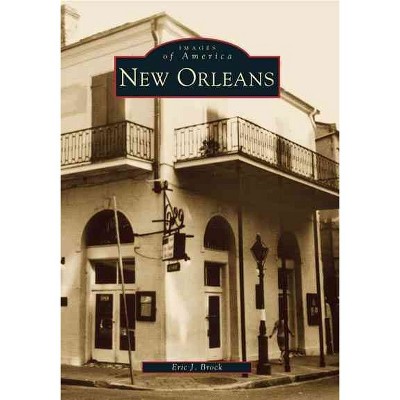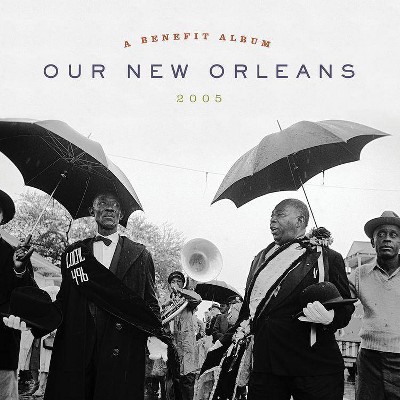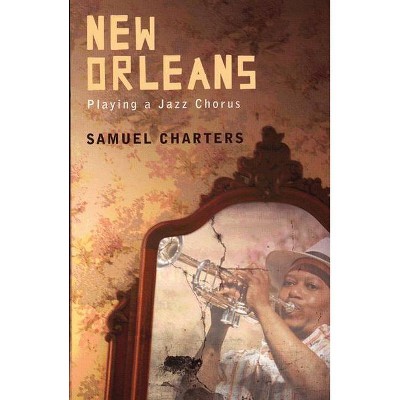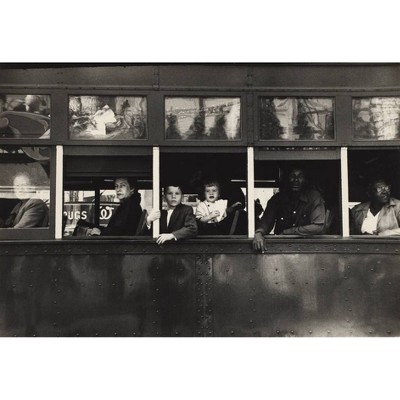New Orleans Suite - by Lewis Watts & Eric Porter (Paperback)
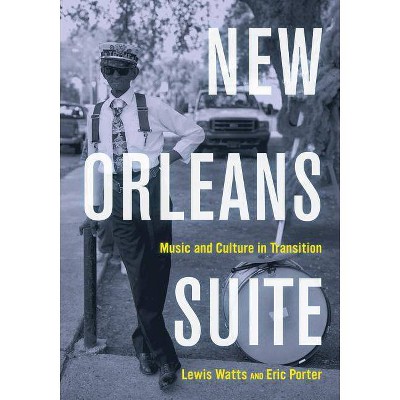
Similar Products
Products of same category from the store
AllProduct info
<p/><br></br><p><b> Book Synopsis </b></p></br></br>With <i>New Orleans Suite, </i> Eric Porter and Lewis Watts join the post-Katrina conversation about New Orleans and its changing cultural scene. Using both visual evidence and the written word, Watts and Porter pay homage to the city, its region, and its residents, by mapping recent and often contradictory social and cultural transformations, and seeking to counter inadequate and often pejorative accounts of the people and place that give New Orleans its soul. Focusing for the most part on the city's African American community, <i>New Orleans Suite</i> is a story about people: how bad things have happened to them in the long and short run, how they have persevered by drawing upon and transforming their cultural practices, and what they can teach us about citizenship, politics, and society.<p/><br></br><p><b> From the Back Cover </b></p></br></br>Mainly, a kaleidoscope of styles, voices and sounds - all re-imagined and visualized in image and text... [the book] grounds the reader in the myriad of beats and rhythms of the city as well as historical and contemporary figures who performed [from] Ellington and Blanchard to Mahalia and Mos Def. -- Deborah Willis, author of <i>Posing Beauty: African American Images from the 1890s to the Present</i><br /><br />"...A remarkable act of avowal. With a sharp eye and critical sensibility, Watts and Porter convey the power of place, expressive culture, and tradition in lives of black residents of New Orleans...[lending] their considerable skill and talent to the remarkable struggles, hopes, dreams, and spirit of this unique city and its extraordinary people." -- Herman Gray, author of <i>Cultural Moves</i><br /><br />The official history of post-Katrina New Orleans may never be written, but Lewis Watts and Eric Porter show us how much we can learn about the city simply by opening our eyes and ears. A deft blend of compelling photography and masterful music criticism, <i>New Orleans Suite</i> documents the Black community's determination to survive despite being systematically silenced and maliciously misrepresented. -- George Lipsitz, author of <i>How Racism Takes Place</i><p/><br></br><p><b> Review Quotes </b></p></br></br><br>[Provides] stunning insight into the day-to-day lives of the citizens of New Orleans, both before and after the storm.-- "Critical Studies in Improvisation"<br><p/><br></br><p><b> About the Author </b></p></br></br><b>Eric Porter </b>is Professor of American Studies, History, and History of Consciousness at the University of California, Santa Cruz. He is the author of <i>What Is This Thing Called Jazz?</i>, winner of a 2003 American Book Award, and <i>The Problem of the Future World. </i> <p/><b>Lewis Watts </b>is Professor of Art at the University of California, Santa Cruz. He is a photographer and visual archivist and coauthor of <i>Harlem of the West, The San Francisco Fillmore Jazz Era.</i> His photography has been exhibited internationally and it is in the collections of major museums across the country.
Price History
Cheapest price in the interval: 34.95 on November 8, 2021
Most expensive price in the interval: 34.95 on December 20, 2021
Price Archive shows prices from various stores, lets you see history and find the cheapest. There is no actual sale on the website. For all support, inquiry and suggestion messages communication@pricearchive.us
